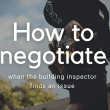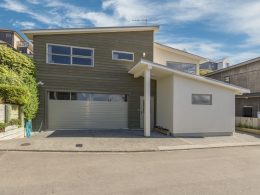Buying a property is a big undertaking and a long term commitment. The goal here is to provide you with a resource that answers your questions and helps you avoid any nasty surprises by getting the right advice before you jump in and buy your next home. Throughout the post below you will find links to other articles which will expand on each point. They are worth checking out when you have a few moments.
Check out the answers below and if I have missed anything please add your question in the comments section and I will answer it in one of my next blog posts.
Real Estate FAQ’s
1. What is the first step in the home buying process?
If you are buying your first home it all starts with getting your finance pre-approved. This involves either contacting a bank directly and working with their in-house mortgage advisors or using a mortgage broker. A broker works on your behalf to secure a pre-approval from any number of banks / institutions at their disposal (often it will be through your own bank).
The benefit of using a broker is that they are often able to negotiate a better deal than you potentially could yourselves by knowing exactly who to talk to and having up to the minute knowledge of what deals different banks are offering (note: they can usually secure interest rates significantly lower than the ones that are publicly advertised by the banks). Brokers are paid a commission by the bank you end up choosing so it doesn’t cost you anything to use one.
Check out: Should you be using a mortgage broker
If you already own a home, the first step is to find out what similar properties are selling for in the current market so you can estimate what your home might be worth. Your RV is not an accurate guide to value in this market.
2. Are there special home buying assistance programs I should know about?
On the 1st of April 2015 the Kiwisaver HomeStart grant was introduced. This means if you are buying your first home in Wellington up to a value of $450k you may be entitled to a grant of $5k each ($10k total). The grant jumps up to $10k each ($20k total) if you are buying a section on which you plan to build your first home.
If you are enrolled in kiwisaver and looking to buy your first home you may also be able to use most of your kiwisaver balance to help get that deposit together. I have met a number of buyer whose entire deposit was made up of kiwisaver funds & the homestart grant (no other personal savings).
Check out: Kiwisaver homestart now available
3. What sort of deposit do I need?
Many buyers believe you have to have a 20% deposit to buy a property. This is simply not the case. While the banks prefer you to have 20%, they still have the ability to lend to people with smaller deposits. When the reserve bank put in new rules recently around deposits and lending they only reduced the number of low deposit loans banks could approve by putting a limit on the percentage of a bank’s lending that could go to buyers with less than 20%.
Check out this page on the ANZ website which explains it further
Note: The reserve bank have just recently relaxed their restriction on the amount of low deposit banks can approve from 10% of total lending up to 15% (outside of Auckland). This means a larger number of buyers will be able to secure properties with a 10 – 15% deposit.
4. What other costs will there be, besides the deposit?
There are a few investments I would recommend to ensure you don’t make a catastrophic mistake and buy a home with expensive problems you don’t know about. There are already enough things that can go wrong with a home after you buy it, so you better go in with your eyes wide open. Always remember, now is not the time to scrimp and save. Always invest in professional advice where required before you go and sign up to what will likely be the biggest purchase of your life.
Some of the most common investments include:
– Solicitor’s advice.
Cost (for the entire buying process): Varies anywhere from $700 – 2,000 (approx) depending on how complicated the process is (eg. How much negotiating there is over building / title issues).
Most people engage a solicitor after they have bought. I recommend starting the relationship well before this. Meet with them to go over the contract you will be signing. Ask them what the common mistakes / pitfalls are. Get them to review the title for any property you are considering (this usually doesn’t cost very much to do).
– Builders Report.
Cost: $500 – 1,000 depending on provider. Time frame: 2 – 10 working days. Most will give you their report the same day they go through the property, or within 24 hours.
We are often able to provide a builders report paid for by the owner. Best practice would be to use this as a starting point but get your own builders report as well, or at the very least, pay to have the owners report transferred into your name. This usually costs a lot less than the original report and can give you more protection going forward (another good thing to talk to your solicitor about before offering).
Check out this post: How to read a builders report
– LIM Report.
Cost: $323.50. Timeframe: takes about 10 working days depending on workload, you can pay $485 to get a ‘fast-track’ lim which should arrive in 5 days.
We are often able to provide these too as owners are starting to see the value of providing this information up front (saves buyers time and money and makes it easier for people to offer). If a LIM has been provided up front then best to check that it is an original electronic copy (not scanned by the agents or the owner). These are supplied to us in electronic form by the Council. When printed originals are scanned or copied pages can be missed and the quality can suffer, be cautious if this is the case and consider getting your own version done just to be sure. If a LIM hasn’t been provided up front then I suggest you get one ordered or add it as a condition of your offer. You can apply for one here (WCC website).
Check out this post too: 7 tips on reading LIM reports
– Registered Valuation.
Cost: $500 – 700 approx.
Sometimes your bank will require you to provide a valuation to confirm your finance (very common if you have less than a 20% deposit). Banks will often have their own panel of valuers so make sure you use someone they approve of. Some buyers invest in a valuation before offering to give them some idea of where they should pitch their offer which is a great idea. Be aware that valuing property is not an exact science and 2 valuers could easily be 5-10% apart on the same property. Use it as a ballpark guide but don’t be afraid to go a bit higher than your valuation if you think it is conservative and you really want the property.
Read: Don’t buy a home without speaking to these 5 people first.
5. How long does it take to buy a home? How long till I get to move in?
Most buyers spend at least a few months looking for the right home. This usually involves making offers and missing out on 2 or 3 homes before they are fortunate enough to have an offer accepted. It’s a competitive market out there and missing out once or twice is often part of the process. I have met buyers who have missed out with 10+ offers quite a few times over the years. It’s important not to get dis-heartened, there are lots of good houses out there and there will always be another one coming on the market soon.
Don’t make the rookie mistake of buying on the rebound.
When you get to move in is different for every property we sell. The most common time frame for settlement (eg. the day you get the keys) is 4 – 6 weeks after having your offer accepted, however many owners prefer a longer settlement (2-3 months is often requested). You can make your offer more attractive by being flexible on your settlement date. Ask us what the owners would prefer when you visit one of our open homes.
6. What kind of home should I buy? What kind of home should I avoid?
If you want to secure a home that will sell well in any future market, and avoid buying a lemon, these are the features I would suggest holding out for:
Always look for: Sun, good access, indoor / outdoor flow, a bit of potential and the right age / materials.
Read more here: The 5 most important features to look for in your new home
Avoid: Do-ups or high maintenance homes unless spending your weekends at Bunnings excites you 🙂
7. What can I expect from real estate agents?
The information and service you receive will vary hugely from property to property and suburb to suburb. My suggestion would be that you find one salesperson you like at each company and try and work with them as much as you can for any properties their office might be marketing. Ask them to register you for the open homes you plan to visit on Sunday. This way you won’t have to deal with phone calls from 10 different agents on Sunday night / Monday morning asking for feedback.
Once your salesperson knows your likes / dislikes and a bit more about your budget (no need to be too specific here) they can advise you whether you are wasting your time on certain houses (eg. tell you if it is likely to be way outside your budget but you just don’t know it yet).
In this market we are sometimes meeting 50+ groups at each open home. With demand like this for each property available the days of salespeople ‘matching buyers to houses’ and signing up contracts on their car bonnet seem to be long gone. With most houses attracting multiple offers we are seeing a lot less negotiating between 1 buyer & 1 seller, in fact it has become pretty rare in our area (much to the dislike of every buyer I talk to!)
The role of a salesperson from a buyers point of view has changed to involve: Facilitating the process in which the property is to be sold (Tender / Auction, Priced etc), providing information about the property and guiding you through the offering process / contract when you are ready.
link: 5 questions to ask at open homes.
link: 5 things you should never say to a real estate agent.
———————————————-
That’s all for this update. Next week we are going to carry on this series and cover…
8. Are properties selling above Rateable Value or below?
We will give you up to date stats for each suburb in our area.
9. How do I know how much to offer?’
You can learn the market. We will tell you how to do it without getting a degree in valuation.
10. Should I talk to a lawyer before I make an offer?
Short answer = YES!
11. How long do I need to put down for conditions? (eg. builders report, LIM etc)
We will get right into detail on this one. So often the highest offer is not the one the owners accept – it is the cleanest one with the fewest conditions that the sellers go for. Even if it means taking less money.
————————————————–
The market is really starting to pickup now with more properties coming on the market every week. Don’t be discouraged if you have been unlucky this Winter, your dream home might be just around the corner!
Have a wonderful week.
THOUGHT OF THE WEEK:
“You have brains in your head, you have feet in your shoes, you can steer yourself any direction you choose” ~ Dr Suess











Dear Andrew Duncan,
Warm greetings from Queenstown,
Thank you for the information on your blog. I find it very useful, and I do appreciate it. Since I am studying to get a RE Salesperson license, I am very interested in the information on your blog. I am an apprentice at ReMax Queenstown, and would like to know if I can use the information on you blog for my future reference. It means I may copy, paste, edit & print some of the information/idea on your blog and use it for training of our staff or potential clients and customers. If I do use the information from you blog, I will not simply copy & print it but will need to summarize it and add more information for future use. I can share the new version with you, too. As I start the new journey in RE industry, your information has been very useful to me.
Enjoy the day~~~